
Edward Jenner was an English physician and scientist who pioneered the concept of vaccines and created the smallpox vaccine, the world's first vaccine. The terms vaccine and vaccination are derived from Variolae vaccinae, the term devised by Jenner to denote cowpox. He used it in 1798 in the title of his Inquiry into the Variolae vaccinae known as the Cow Pox, in which he described the protective effect of cowpox against smallpox.

The smallpox vaccine is the first vaccine to have been developed against a contagious disease. In 1796, British physician Edward Jenner demonstrated that an infection with the relatively mild cowpox virus conferred immunity against the deadly smallpox virus. Cowpox served as a natural vaccine until the modern smallpox vaccine emerged in the 20th century. From 1958 to 1977, the World Health Organization (WHO) conducted a global vaccination campaign that eradicated smallpox, making it the only human disease to be eradicated. Although routine smallpox vaccination is no longer performed on the general public, the vaccine is still being produced to guard against bioterrorism, biological warfare, and mpox.
Paul Francis Wehrle was a researcher and physician who helped develop of methods to prevent and treat polio and smallpox.

The 1978 smallpox outbreak in the United Kingdom resulted in the death of Janet Parker, a British medical photographer, who became the last recorded person to die from smallpox. Her illness and death, which was connected to the deaths of two other people, led to the Shooter Inquiry, an official investigation by government-appointed experts triggering radical changes in how dangerous pathogens were studied in the UK and named after the panel's leader.
Judith Swann Palfrey is an American pediatrician and author. She is the T. Berry Brazelton Professor of Pediatrics at Harvard Medical School and the author of Community Child Health: An Action Plan for Today (1995) and Child Health In America: Making A Difference Through Advocacy (2006), and co-editor of Global Child Health Advocacy (2014) and the Disney Encyclopedia of Baby and Childcare (1995). She is also the former Faculty Dean of Adams House at Harvard University along with her husband Sean Palfrey who is also a pediatrician in Boston.
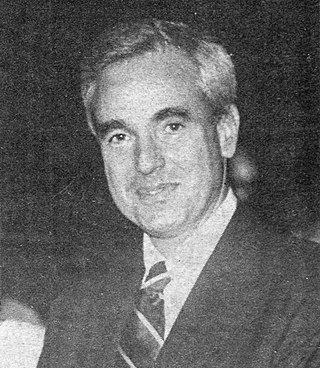
Harlow Keith Hammond Brodie was an American psychiatrist, educator, and former president of Duke University.

Adelle Davis was an American writer and nutritionist, considered "the most famous nutritionist in the early to mid-20th century." She was an advocate for improved health through better nutrition. She wrote an early textbook on nutrition in 1942, followed by four best-selling books for consumers which praised the value of natural foods and criticized the diet of the average American. Her books sold over 10 million copies and helped shape America's eating habits.
Donald Pinkston Francis is an American epidemiologist who worked on the Ebola outbreak in Africa in the late 1970s, and as an HIV/AIDS researcher. He retired from the U.S. Public Health Service in 1992, after 21 years of service. He lives in San Francisco, California.
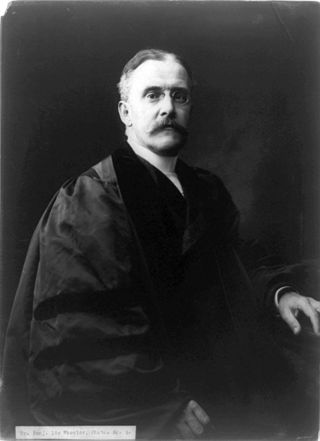
Benjamin Ide Wheeler was a professor of Greek and comparative philology at Cornell University, writer, and President of the University of California from 1899 to 1919.

Rahima Banu Begum is the last known person to have been infected with naturally occurring Variola major smallpox, the more deadly variety of the disease.
Emily Partridge Bacon was the first physician in Philadelphia to devote her practice exclusively to pediatrics. She introduced numerous innovations in her fifty-year hospital career, including the creation of a "well-baby" clinic, and a counseling service for troubled children. She was also a much-loved teacher and combined her clinical practice with a teaching career at the Woman's Medical College of Pennsylvania for over thirty years.

Fe Villanueva del Mundo,, was a Filipina pediatrician. She founded the first pediatric hospital in the Philippines and is known for shaping the modern child healthcare system in the Philippines. Her pioneering work in pediatrics in the Philippines while in active medical practice spanned eight decades. She gained international recognition, including the Ramon Magsaysay Award for Public Service in 1977. In 1980, she was conferred the rank and title of National Scientist of the Philippines, and in 2010, she was conferred the Order of Lakandula. She was the first female president of the Philippine Pediatric Society and the first woman to be named National Scientist of the Philippines in 1980. She was also the founder and the first president of the Philippine Pediatric Society, the first Asian to be elected president of the Philippine Medical Association in its 65-years existence, and the first Asian to be voted president of the Medical Woman's International Association.
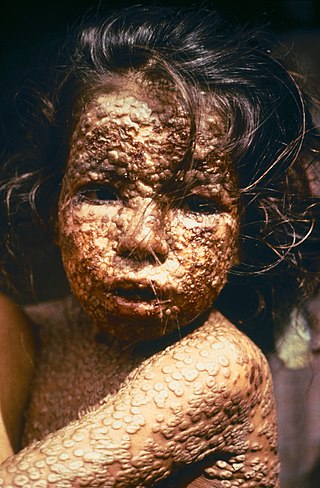
Smallpox was an infectious disease caused by variola virus, which belongs to the genus Orthopoxvirus. The last naturally occurring case was diagnosed in October 1977, and the World Health Organization (WHO) certified the global eradication of the disease in 1980, making smallpox the only human disease to have been eradicated to date.
James Michael McGinnis is an American physician, epidemiologist, and long-time contributor to national and international health programs and policy, including continuous policy responsibilities for leadership in disease prevention and health promotion through four US Government Administrations. An elected member of the Institute of Medicine of the National Academies, he currently also serves as IOM Senior Scholar, as well as executive director of its Roundtable on Value & Science-Driven Health Care.
Laurie Lola Vollen is a scholar and human rights activist. She specializes in the repercussions of large-scale human rights abuses.
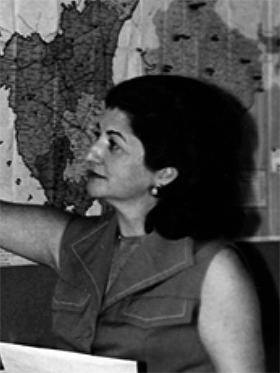
Nicole Grasset was a Swiss-French medical virologist and microbiologist-epidemiologist. Grasset was the senior smallpox advisor for the South-East Asia Regional Office (SEARO) of the World Health Organization (WHO) from 1971 through the end of the WHO smallpox eradication campaign.
C. Henry Kempe was an American pediatrician and the first in the medical community to identify and recognize child abuse.
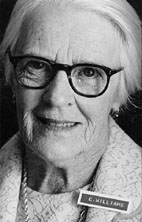
Cicely Delphine Williams, OM, CMG, FRCP was a Jamaican physician, most notable for her discovery and research into kwashiorkor, a condition of advanced malnutrition, and her campaign against the use of sweetened condensed milk and other artificial baby milks as substitutes for human breast milk.
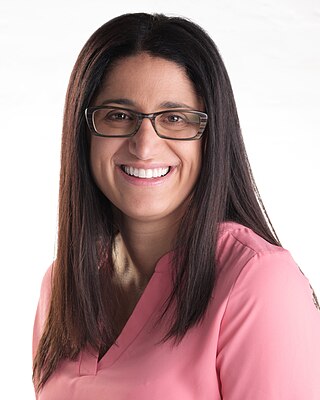
Mona Hanna-Attisha is a pediatrician, professor, and public health advocate whose research exposed the Flint water crisis. She is the author of the 2018 book What the Eyes Don't See, which The New York Times named as one of the 100 most notable books of the year.
Tina Lee Cheng is an American pediatrician. In 2020, she was named the Chair of Pediatrics, Chief Medical Officer, and Research Foundation Director of Cincinnati Children's Hospital Medical Center and was previously Director of Pediatrics and Pediatrician-In-Chief at Johns Hopkins University.












